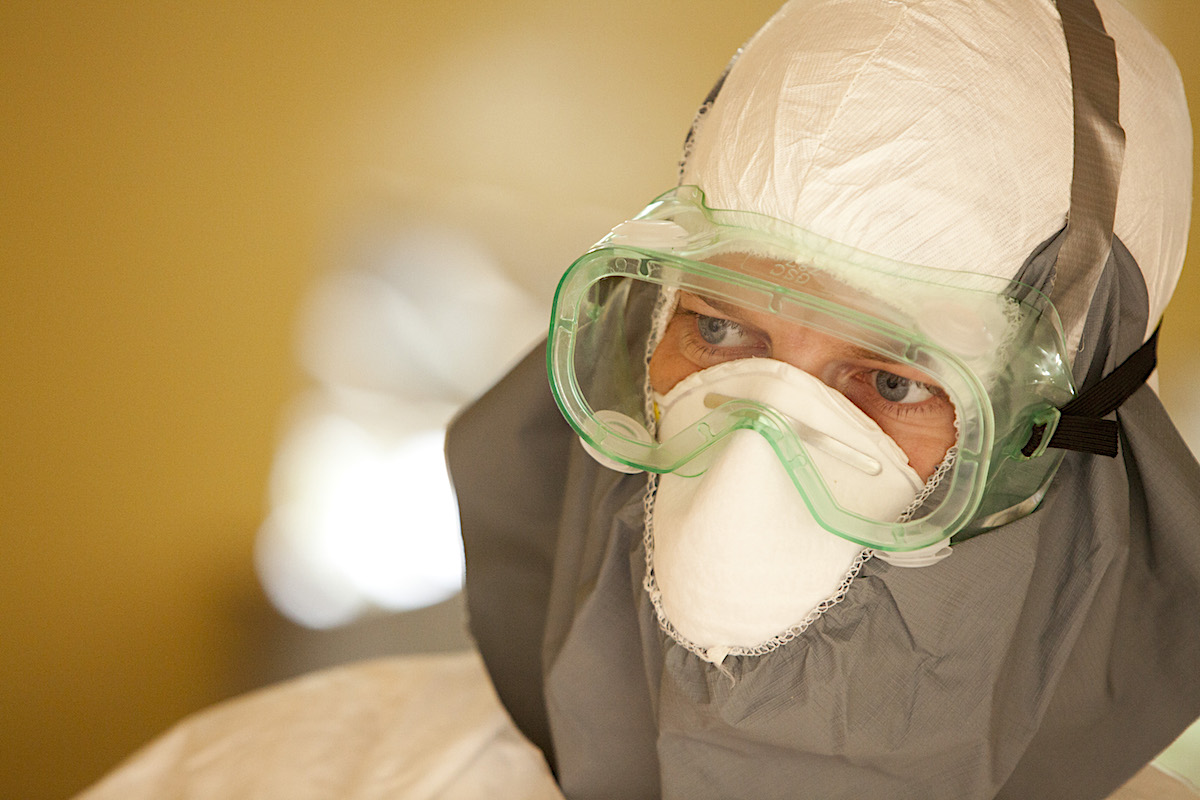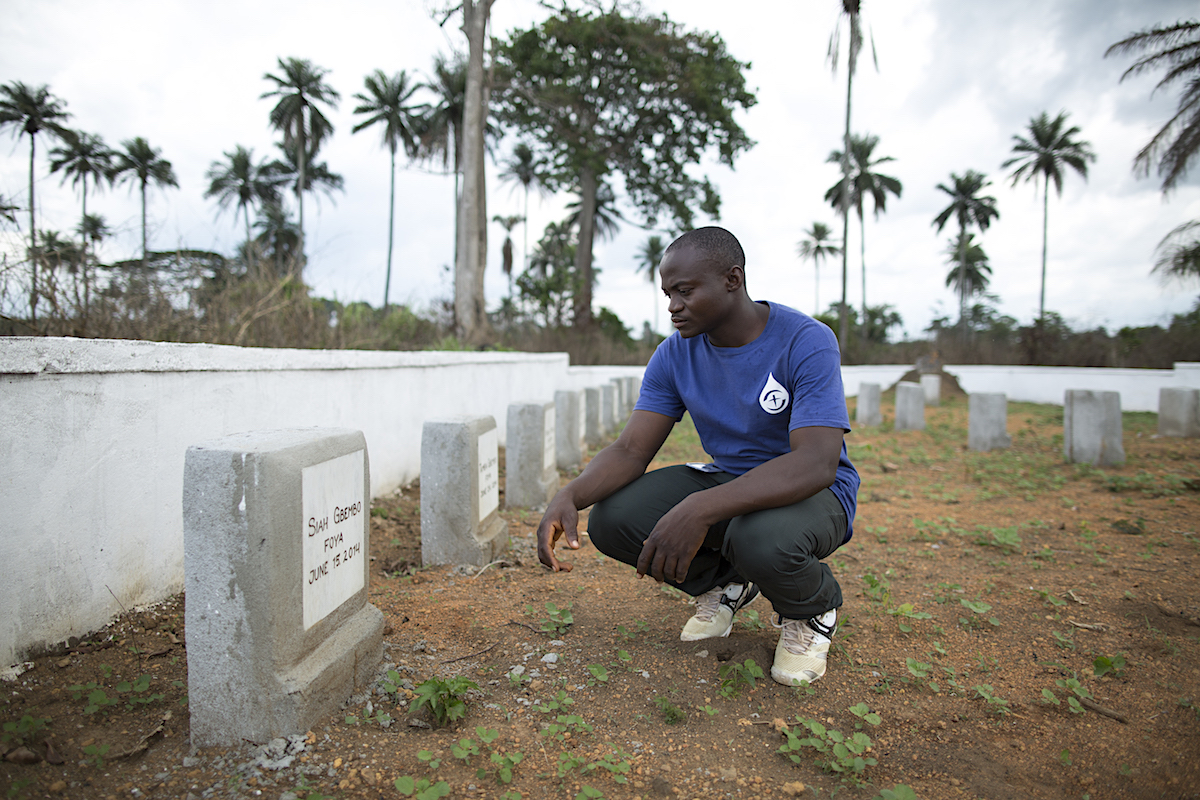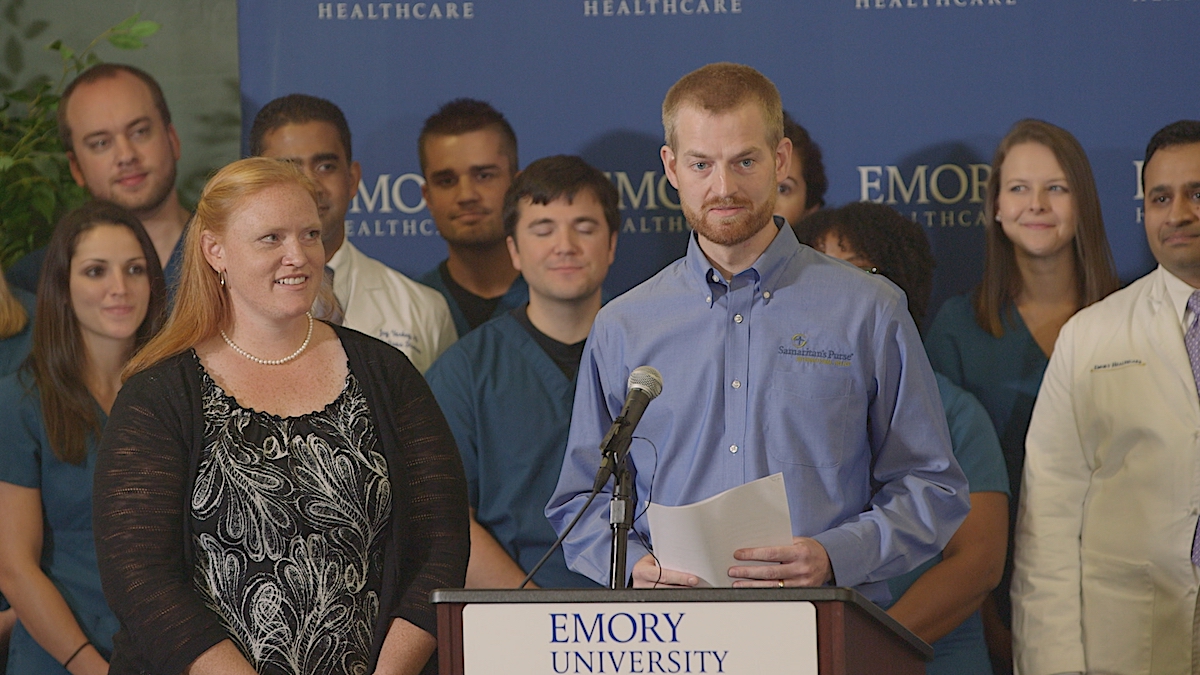![]()
Rated: Unrated | Running Time: 98 Minutes
From: Virgil Films | Samaritan’s Purse
Available on DVD, and Digital: July 25, 2017
Get it via : Amazon | iTunes
Remember Ebola back in the spring of 2014?
 Of course you don’t. You think you do, but it wasn’t the spring. Back in the spring of 2014 the Ebola pandemic was news in mostly one place, Western Africa, with the rest of the world oblivious. For almost everyone else it was “Oh, there’s a crisis in Africa? What else is new? It’s not affecting me. What do I care, it’s not in my back yard?”
Of course you don’t. You think you do, but it wasn’t the spring. Back in the spring of 2014 the Ebola pandemic was news in mostly one place, Western Africa, with the rest of the world oblivious. For almost everyone else it was “Oh, there’s a crisis in Africa? What else is new? It’s not affecting me. What do I care, it’s not in my back yard?”
There were, however, people who cared. Many them were with the group Samaritan’s Purse, a Christian missionary group. Its members already in Africa helping anyone who needed it.
Remember Ebola back in the late summer of 2014?
Yup, that’s when you remember it. Why? It came to your back yard. There, on the news, was the story, two American citizens who were helping with the Ebola outbreak were being flown back to the United States for treatment. Suddenly you were afraid Ebola was actually going to affect you, and you cared, kind of.
“Facing Darkness” is a documentary of what happened in that period when you didn’t know about Ebola, and when nervously joked about anyone who said, “I think I’ve got the flu.”
 Opening with Joseph Gbembo describing most all his immediate family falling ill and dying, “Facing Darkness” quickly begins to focus on the work of Dr. Kent Brantley and co-worker, Nancy Writebol. Both were with Samaritan’s Purse working in Africa. They were also the two Americans eventually flown back to the States for treatment after they contracted Ebola.
Opening with Joseph Gbembo describing most all his immediate family falling ill and dying, “Facing Darkness” quickly begins to focus on the work of Dr. Kent Brantley and co-worker, Nancy Writebol. Both were with Samaritan’s Purse working in Africa. They were also the two Americans eventually flown back to the States for treatment after they contracted Ebola.
As the documentary progresses we learn of how, as in the past with Ebola, the disease spread, but, in the worst case for Western Africa, its recent history of political unrest, fear, and the disease finding itself in major population centers, any early hope for treatment and containment were infinitesimal. Yet there were the missionaries, transforming any aspect of their operations that they could, into treatment facilities, for people who were scared and mostly just going to die.
Donning the hazmat suits, the missionaries did what they could to help those infected, while outside the facility, even faced with threats of death from those that feared they were the ones actually bringing the Ebola upon them, they did all they could to educate to help stop the spread. To their dismay, however, no one in the rest of the world seemed to care, and the “humanitarian” nature of governments was almost non-existent.
 Details are given of the precautions everyone took, yet in the world the aid givers found themselves it wasn’t surprising the disease eventually came to some of their own. Now Kent and Nancy are faced with a progress to death that they had witnessed first hand, and their families are thrown into the turmoil of losing their loved ones.
Details are given of the precautions everyone took, yet in the world the aid givers found themselves it wasn’t surprising the disease eventually came to some of their own. Now Kent and Nancy are faced with a progress to death that they had witnessed first hand, and their families are thrown into the turmoil of losing their loved ones.
What to do? If you’re Samaritan’s Purse you do anything you can, and with the combined help of Samaritan’s Purse, and others, Kent and Nancy made it back to the Unites States, complete with experimental treatment (the explanation of how that came to be is fascinating). They survived, and now, for everyone else, the Ebola crisis was real as Kent became the face of the Ebola pandemic.
“Facing Darkness” is a look into the fear that can be driven when an epidemic strikes, but it is also an inspiration that in fear there is also hope, and faith, to survive. Put together excellently, with touching interviews with the care-givers, the families, and those infected, the documentary mixes the beauty of Western Africa with the ugliness of the disease and political turmoil, into a story that, at the end, might have you just saying, “Wow, I’m not doing squat to help others, am I?”
As the documentary is put together by the folks of Samaritan’s Purse you will find religious undertones throughout, but until the last five or ten minutes things don’t get too preachy about Jesus. Instead, the documentary really brings the human element into the story, showing the strain the aid-givers had to deal with seeing people who were mostly just destined to die, while at the same time being completely frustrated by the lack of help from outside their organizations. Through the crapiness, though, the strength they showed, developed from their network of co-workers, family, and faith, is inspirational, as they adapt to every challenge, at the end of it all see life as a gift.
I will say that as much as I found “Facing Darkness” a compelling documentary of the story of the Ebola crisis, as a movie it also seemed about 30 minutes too long. Yes, I understand there was a lot to say, but at one point I finally got to the point of “Yea, this sucks. It sucks that the governments didn’t really seem to care. Let’s wrap this up.” Then I looked and said, “Holy crap, there are thirty minutes left in this. Ugh!”
At the end of it all I’ll give “Facing Darkness” 4 stars out of 5. It’s a story of how we, as outsiders, really need to pay attention to many of the plights around the world, and should do so long before they come to our back yard. It’s also a story of how resilient we can be, as people, when faced with just about nothing but death, and how precious life really is. It’s also a story of how you probably aren’t doing enough to help others. Find a way.
